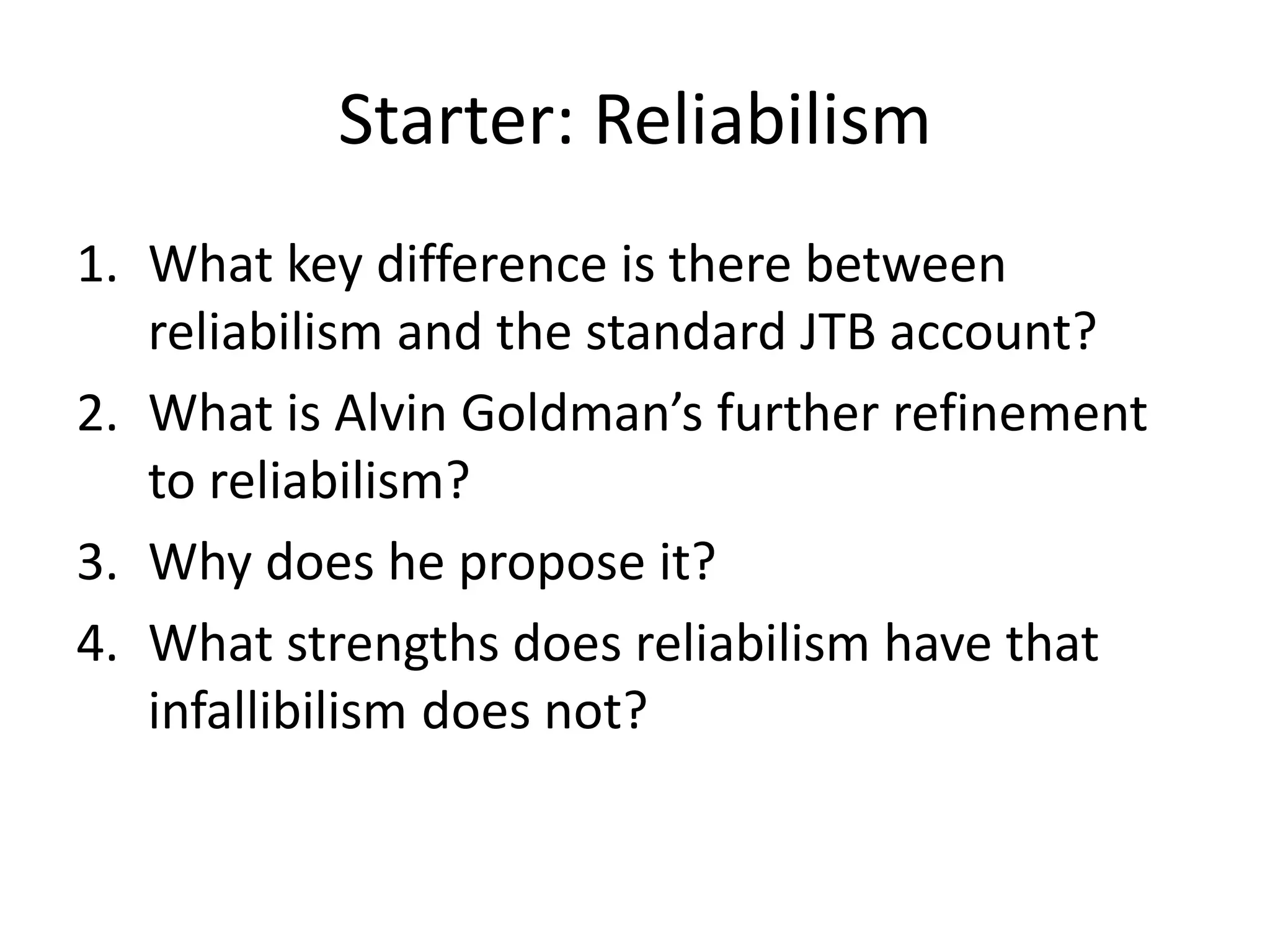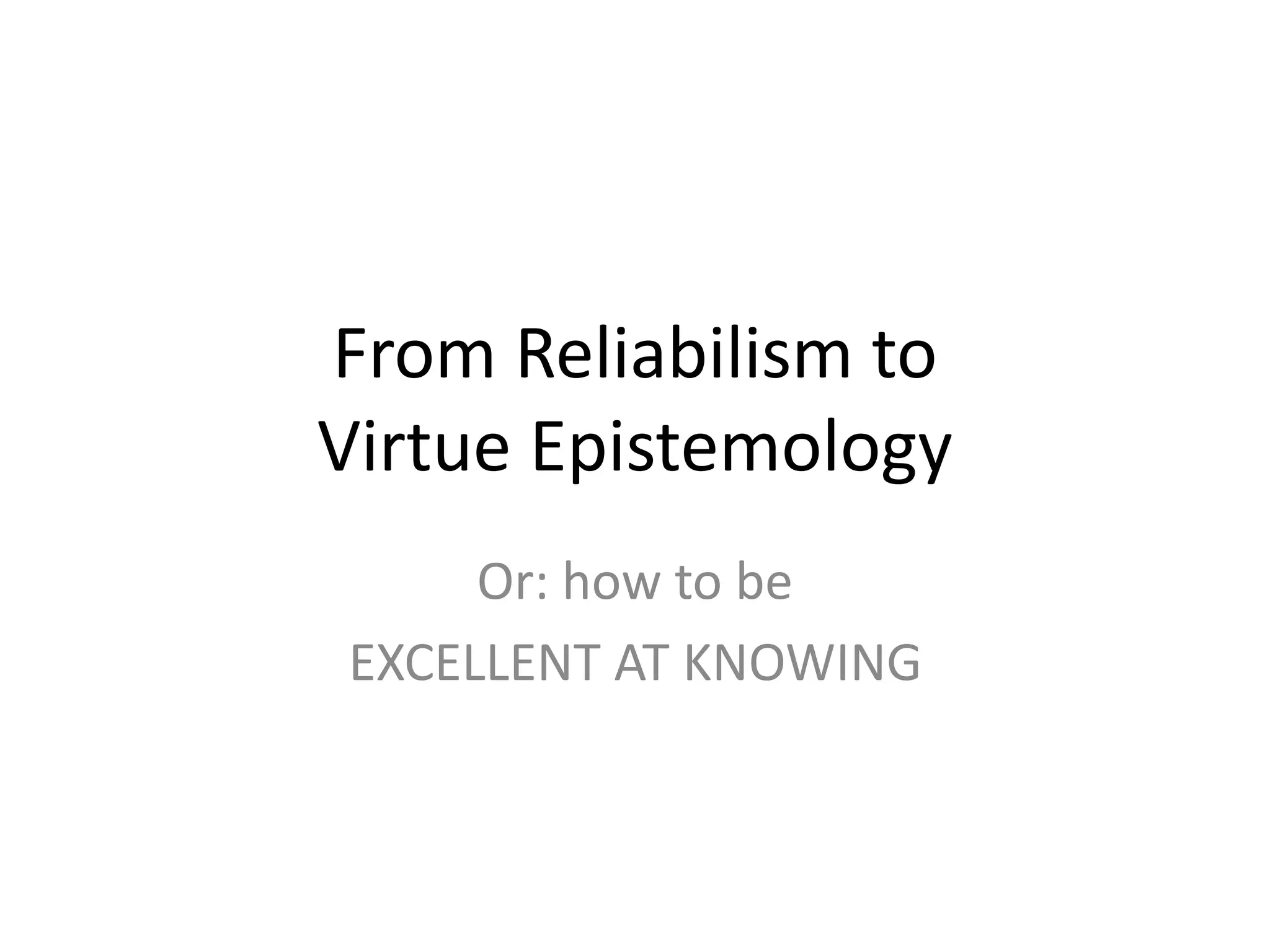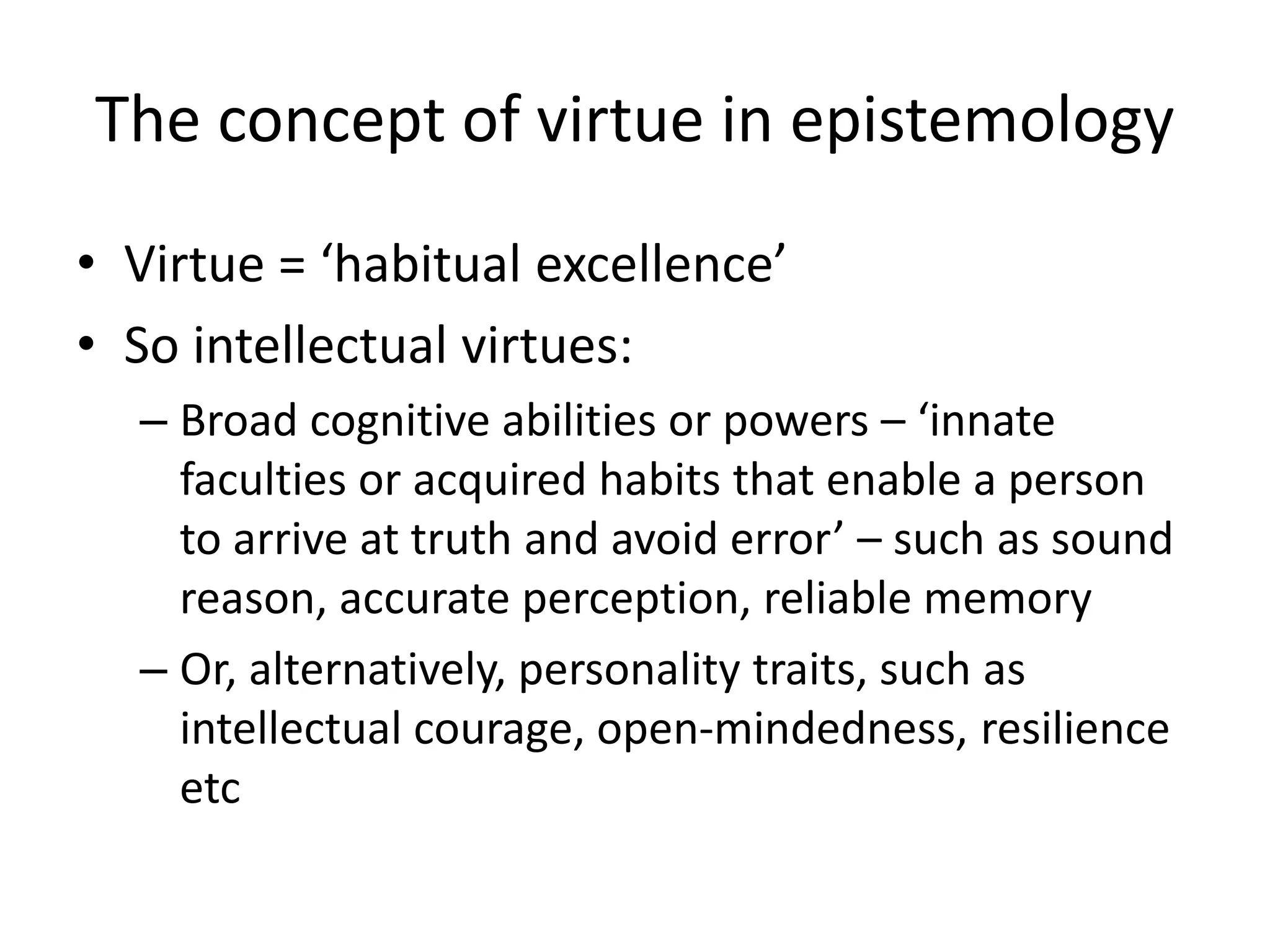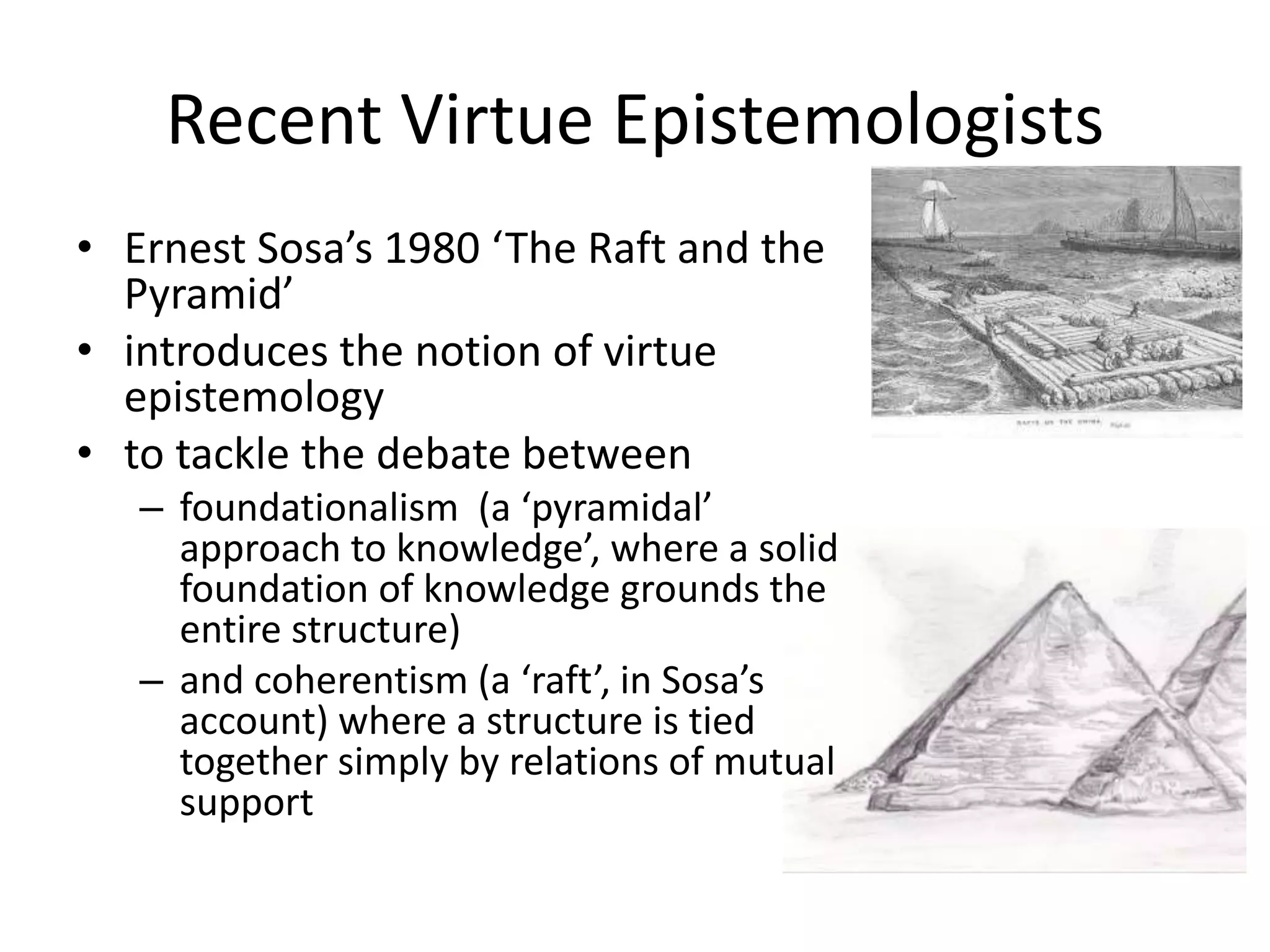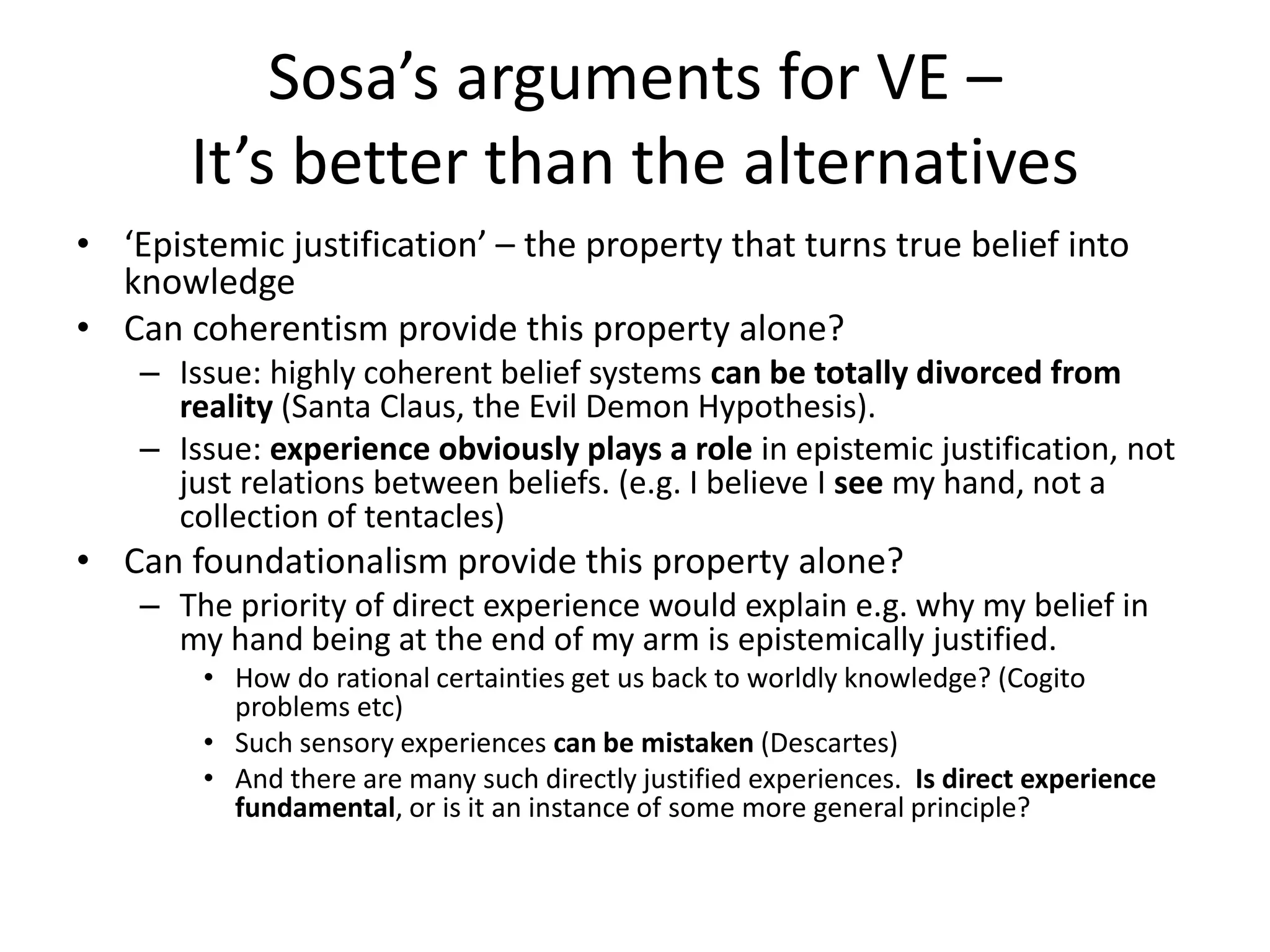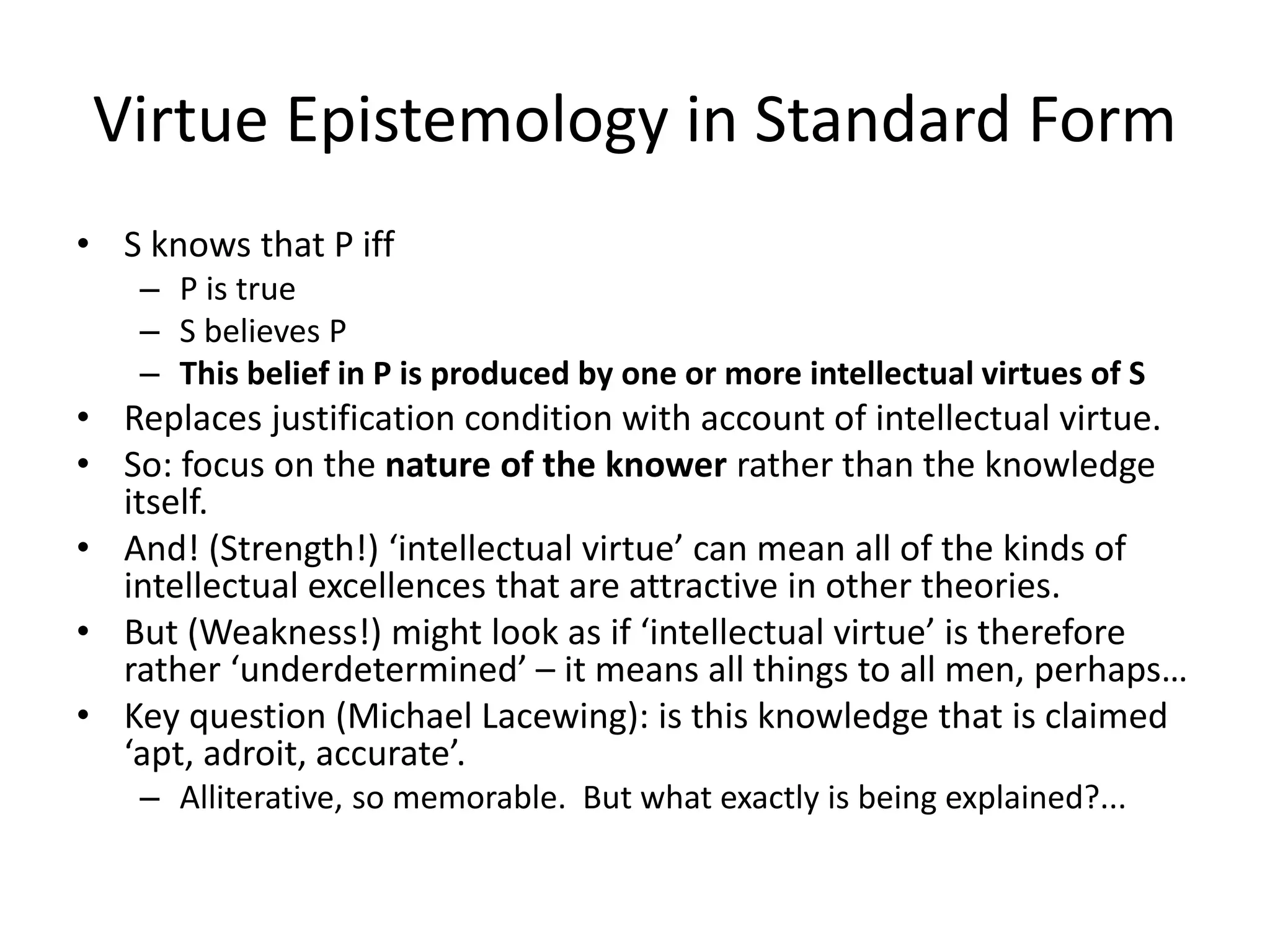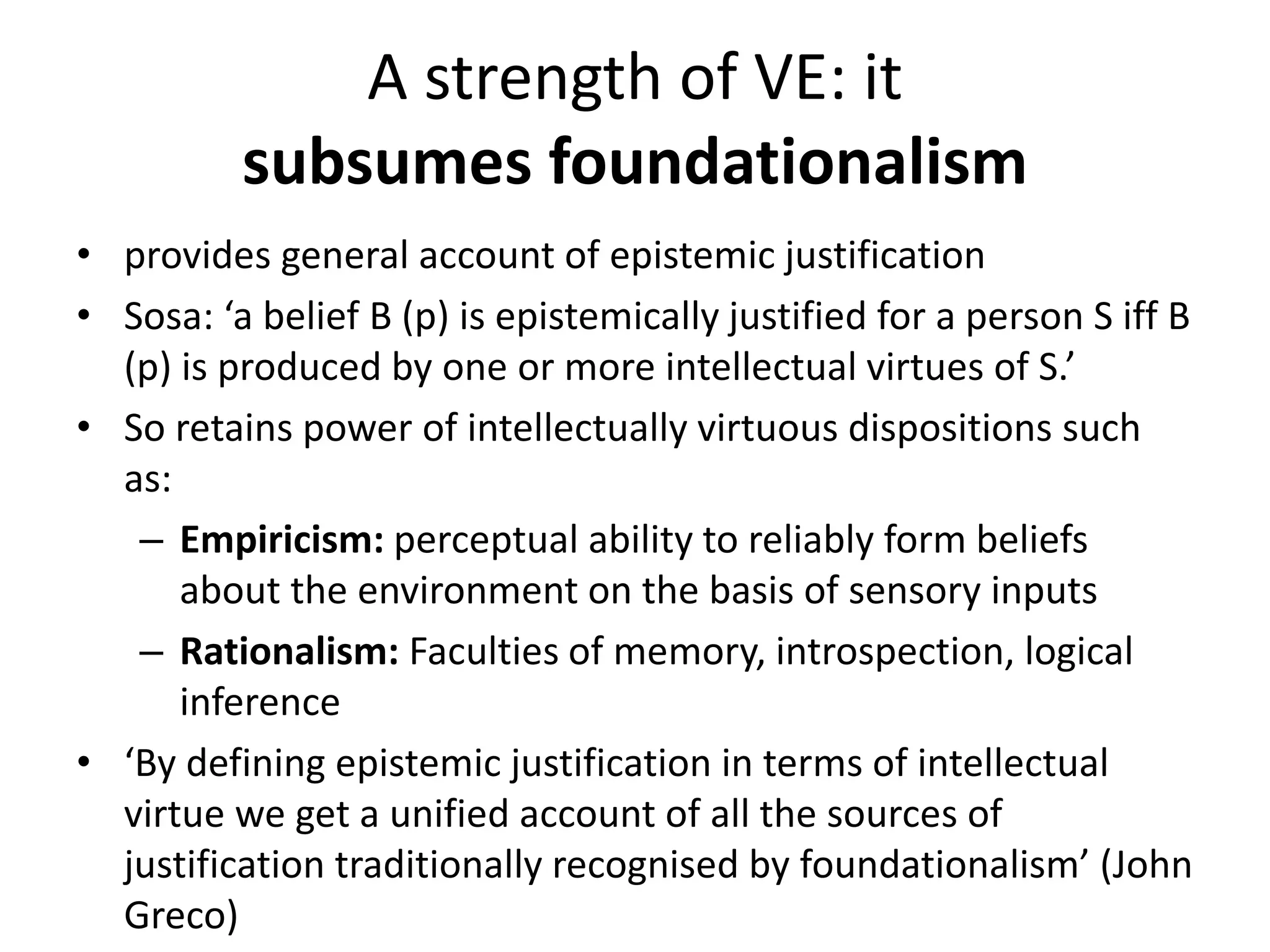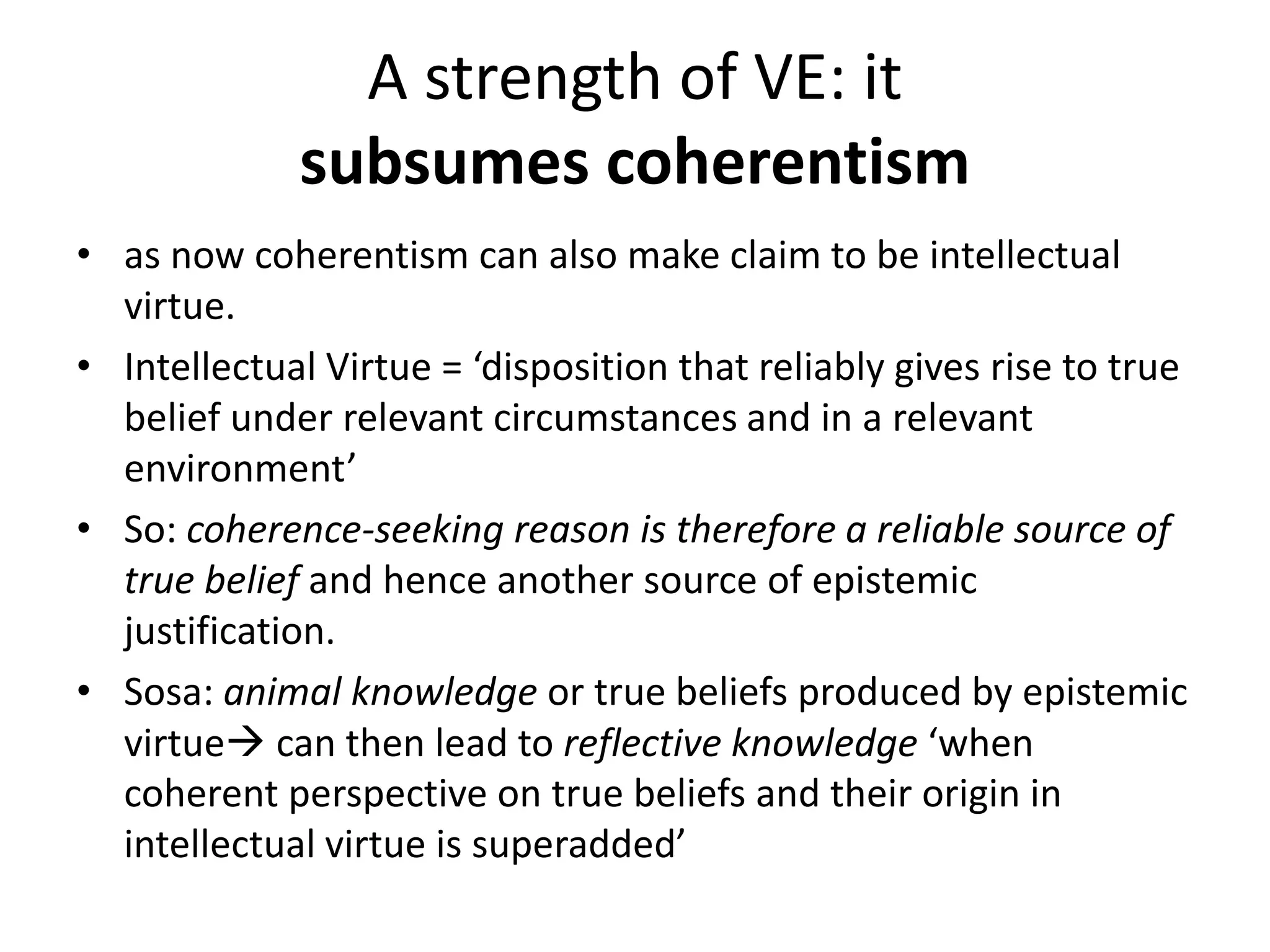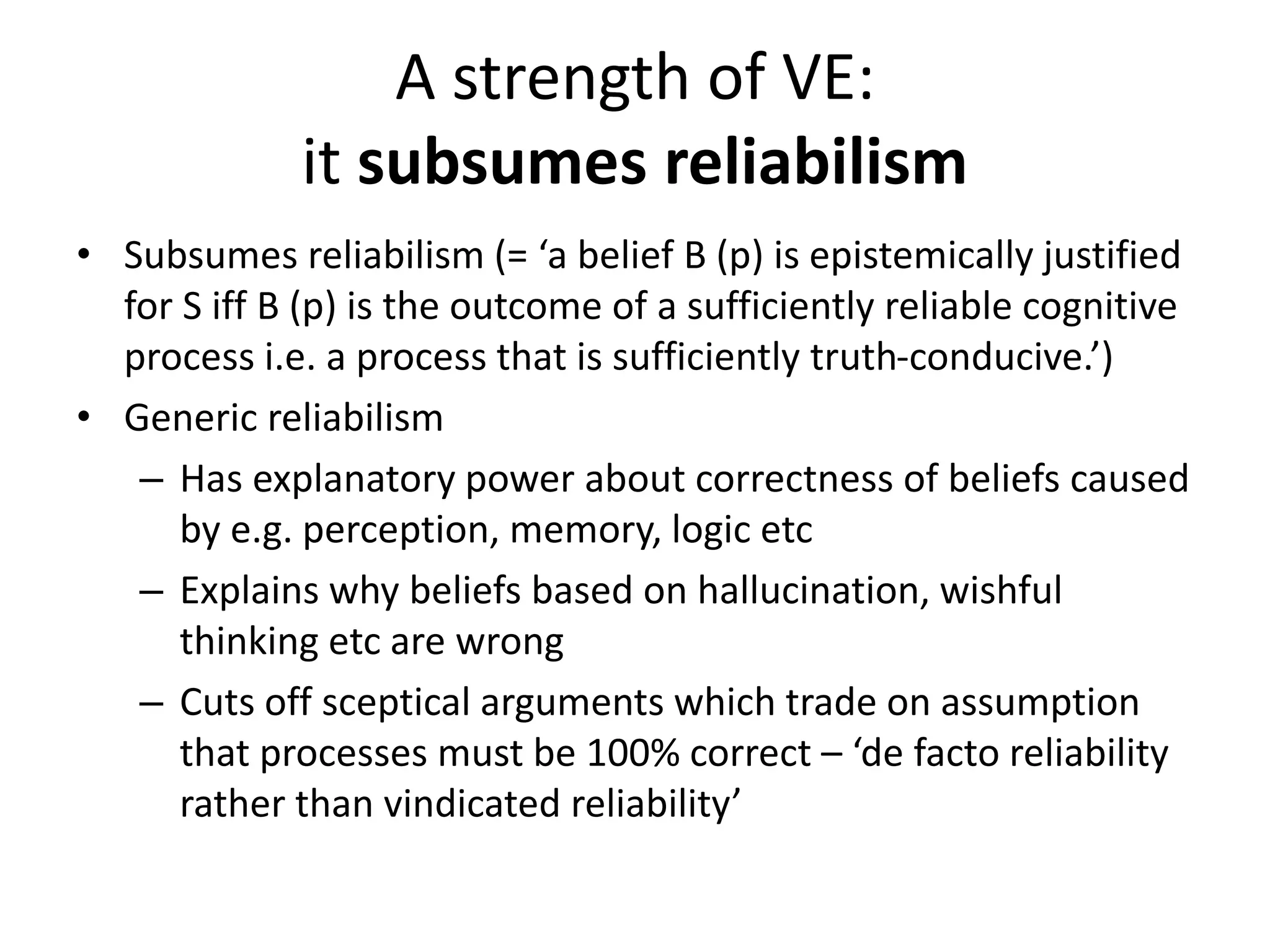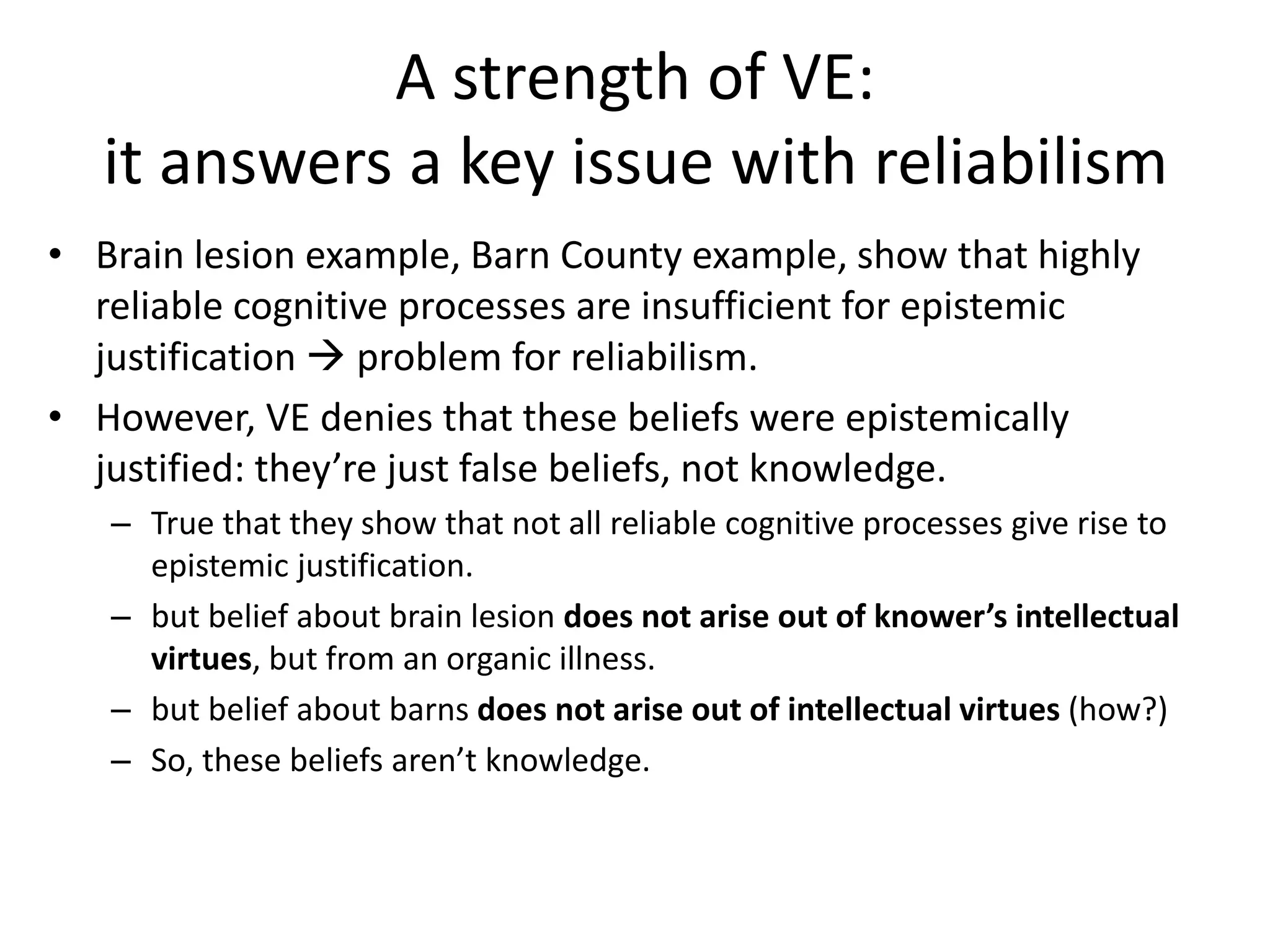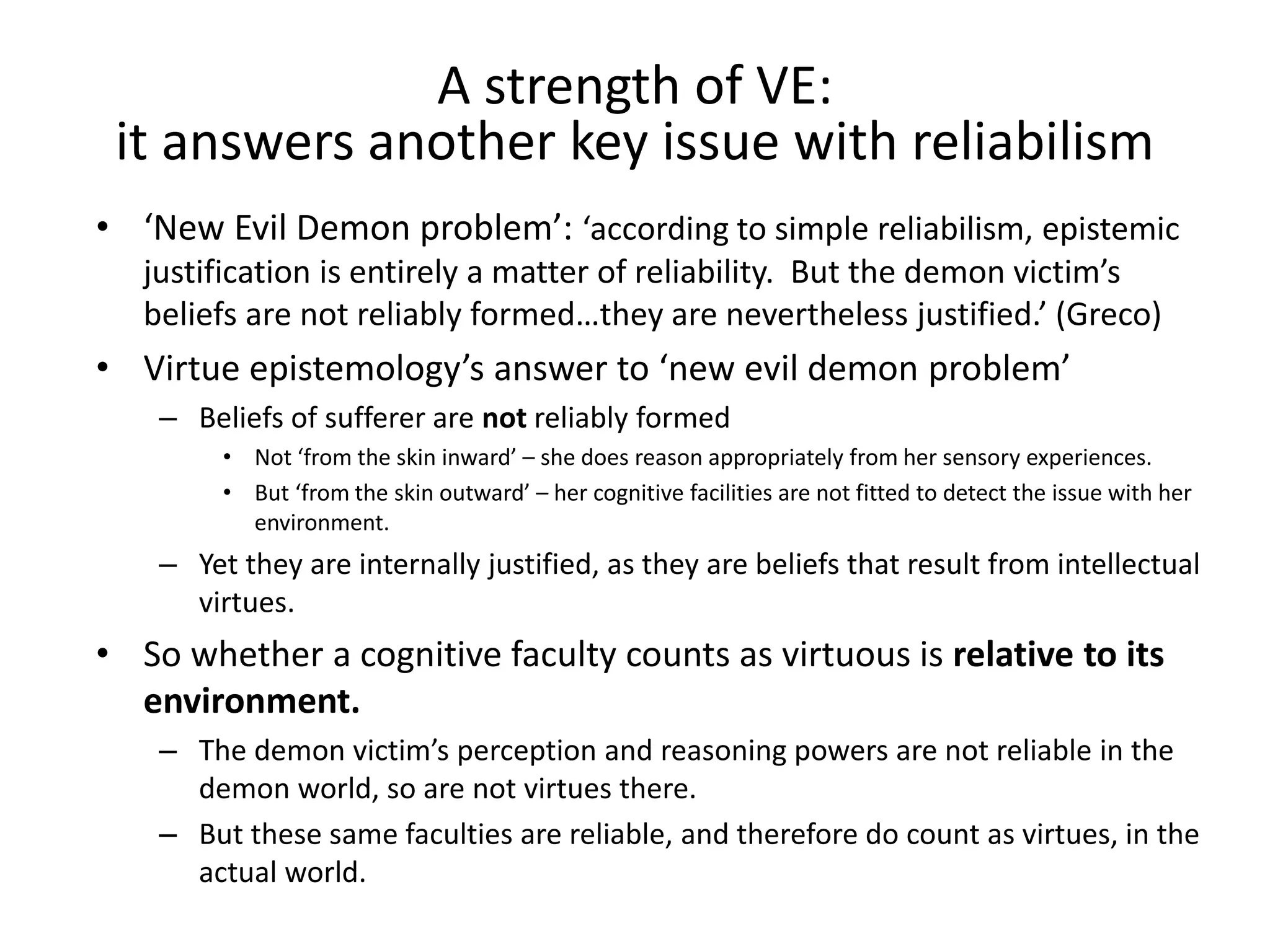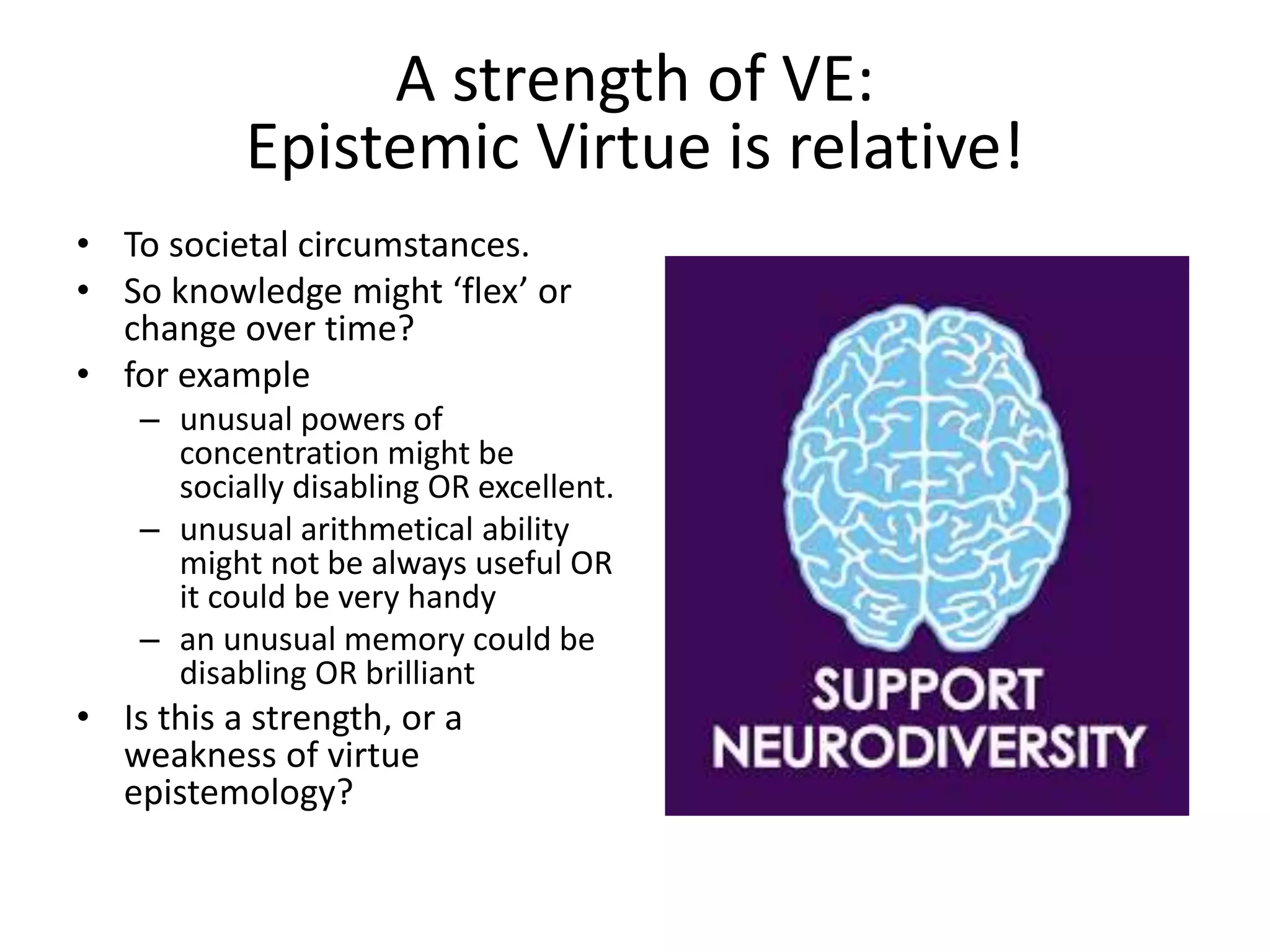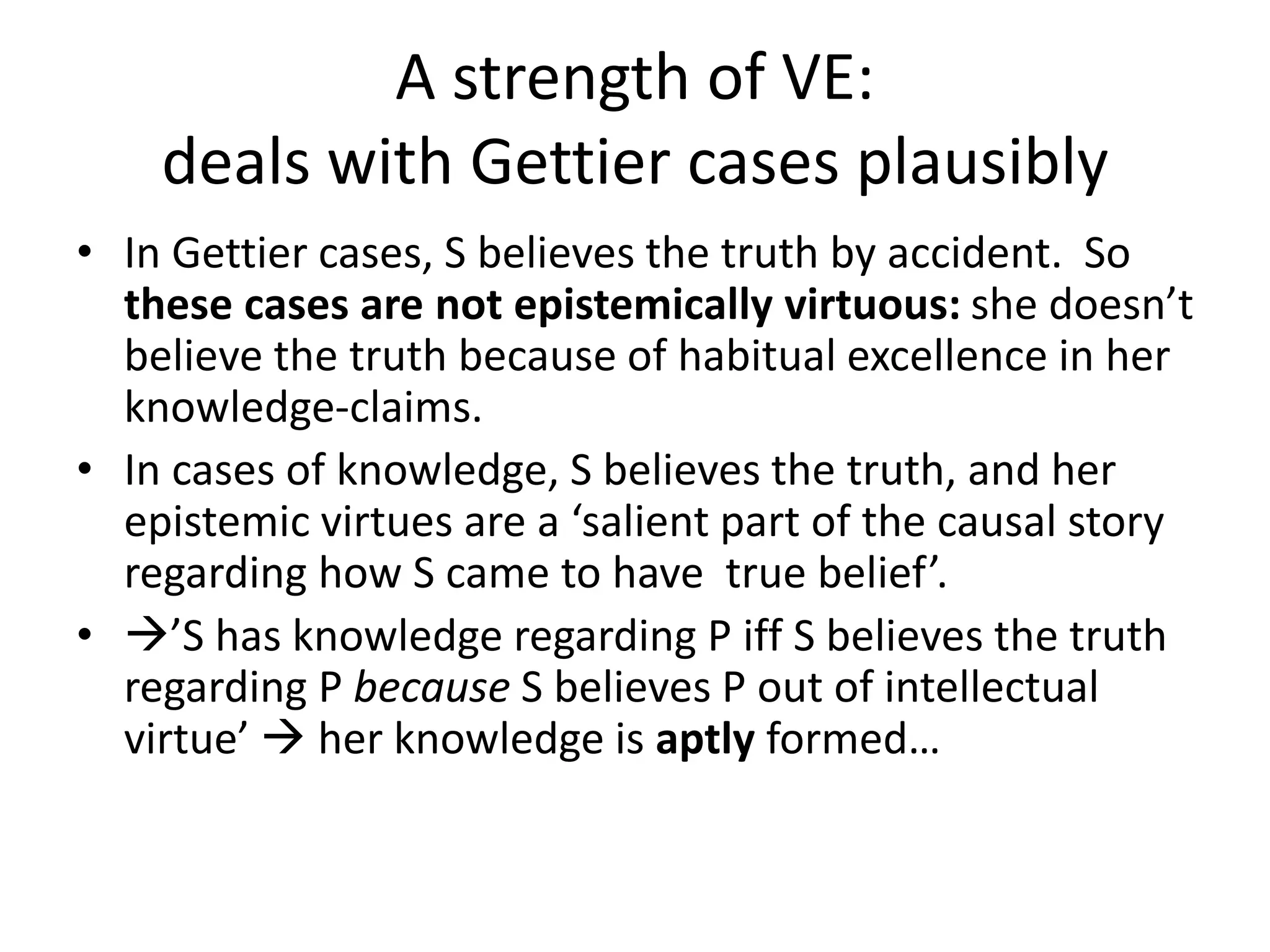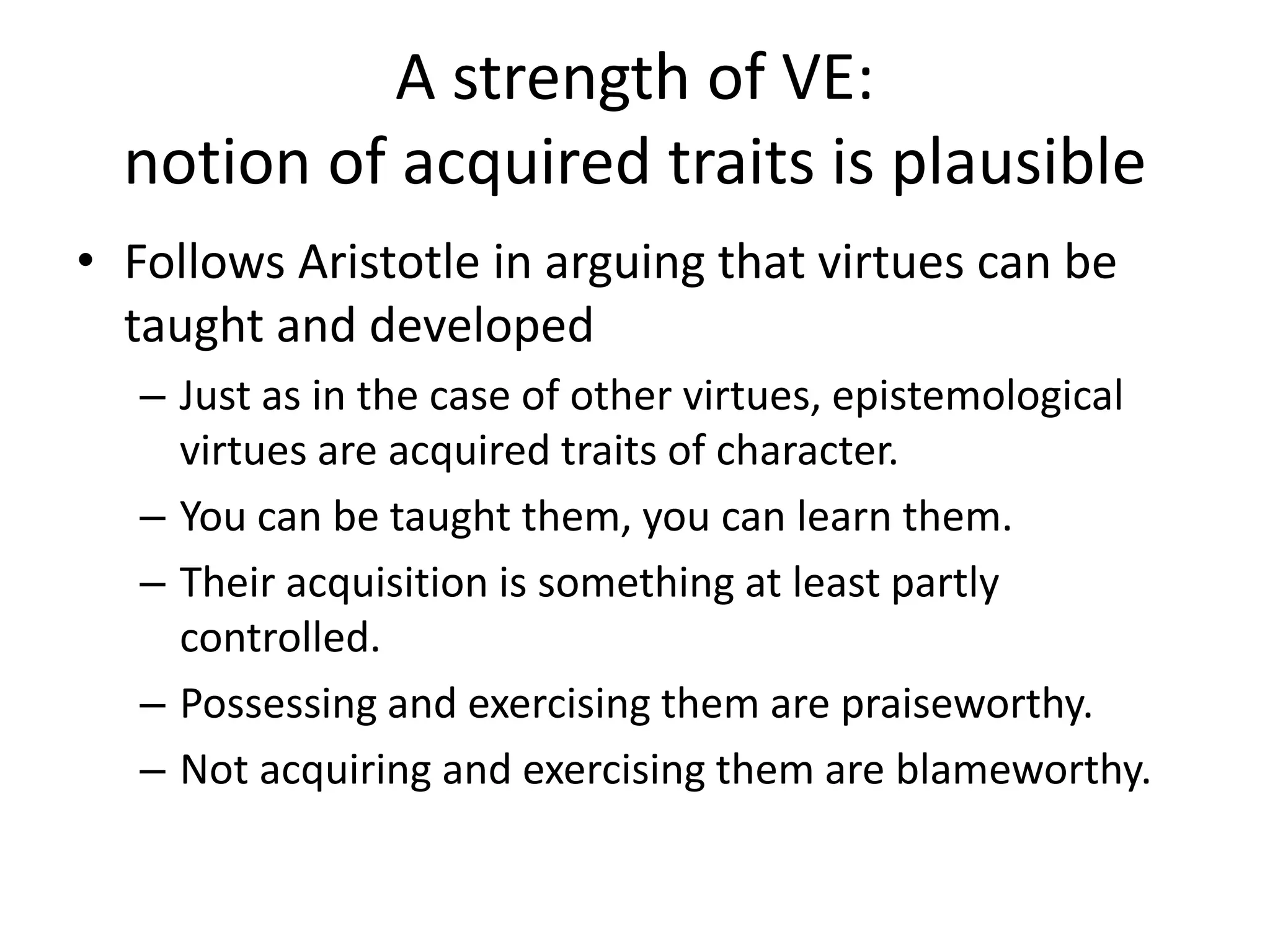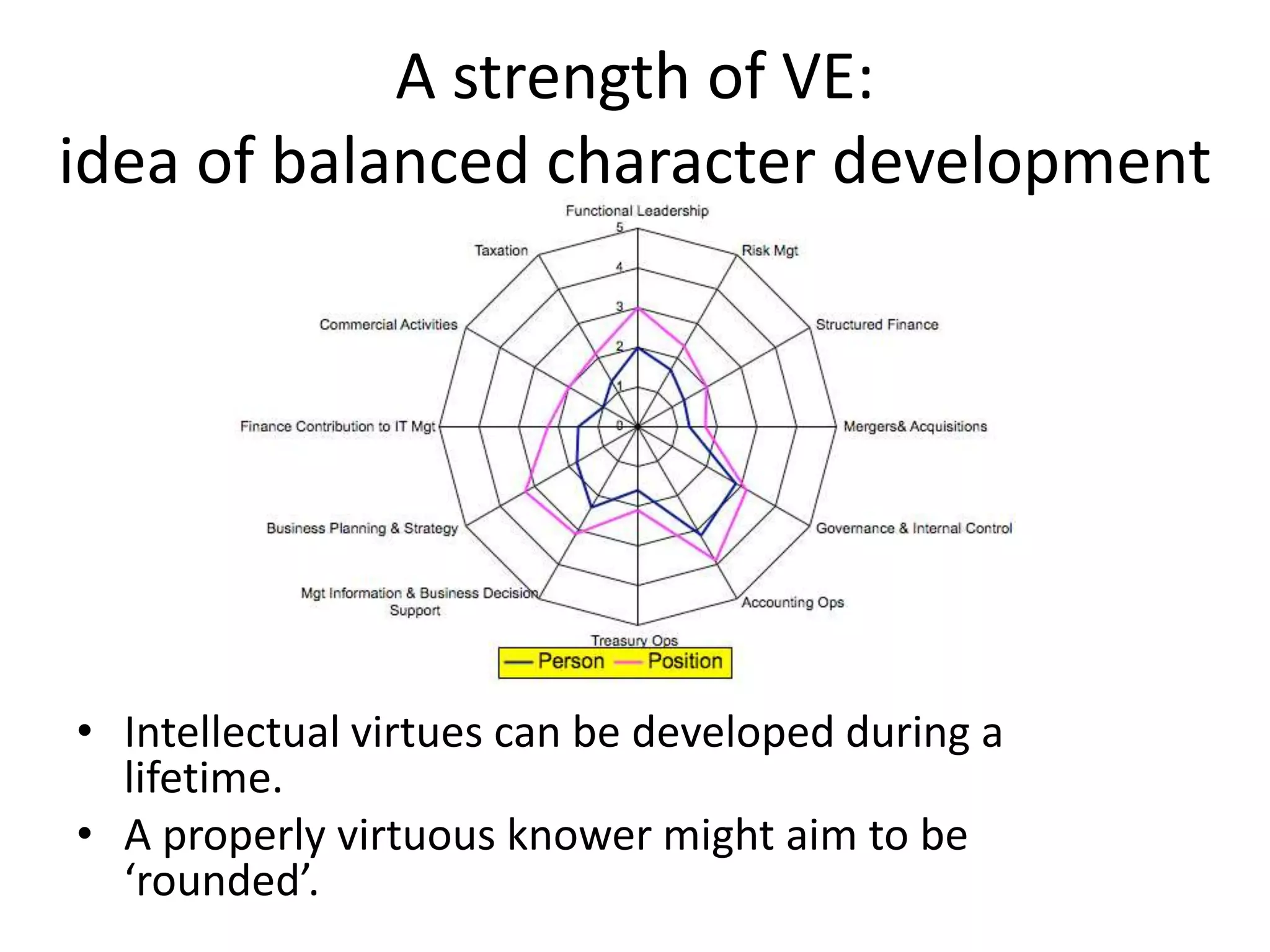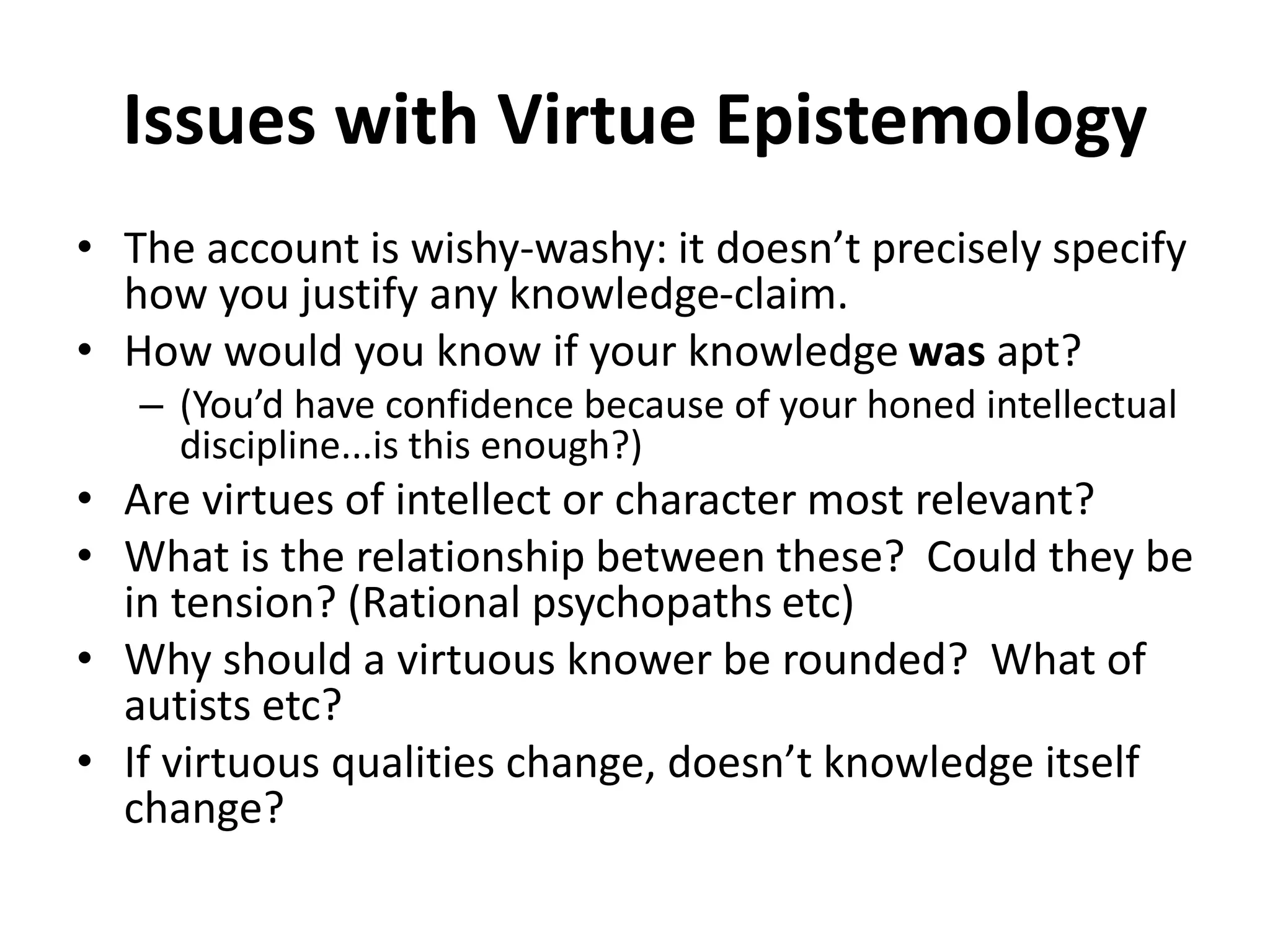Reliabilism focuses on the reliability of belief-forming processes, while virtue epistemology focuses on the character traits of the knower. Virtue epistemology subsumes and addresses issues with foundationalism, coherentism, and reliabilism by defining knowledge as true belief arising from intellectual virtues like sound reasoning, perception, and memory. It explains why Gettier cases and unreliable beliefs are not knowledge. However, virtue epistemology is criticized for not precisely specifying how to justify beliefs and for potentially changing standards of knowledge over time and circumstances.
